|
4/17/2024 0 Comments Context Reigns SupremeSetting guardrails and boundaries for businesses can be difficult. Everyone is flinchy about cancel culture right now. Sorting which systems are the healthiest and most sustainable for industry practice can be a tricky nugget to crack. As a creative business owner, I don’t want to limit or impede creativity or healthy communication and ideas on my teams, which means removing as many containment systems as possible. Additionally, I would like the works we produce at Elder Glade Publishing to be welcoming and enjoyable to many people. It won’t be and can never be enjoyable to ALL people. That’s an unrealistic, dangerous expectation.
More on the way EGP plans to hit the scene and those community standards here. The big kerfuffle and why I’m writing this post revolves around the internal selection of materials EGP will be using for in-house training and reference guides. The hullabaloo is about my decision to cut the much beloved books and guides for conscious language from the training material for Elder Glade Publishing. There are in fact several of these wonderful books, and yes, they are wonderful. Their intent is fantastic, and their processes are a beautiful bridge to better human interactions… when applied with wisdom. Conscious language tools are not the problem. Those tools being actively and aggressively applied to mass media, entertainment, business structure and literature without CONTEXT is the problem. Context will always reign supreme. Nine out of nine editors, and two out of three designers I worked with in 2023 used the conscious language patterning and processes as applied to projects or materials I sent in for development. Of the fifty or so notes generated from their replies, I kept four. I was happy to make those four changes! Those four suggestions were very helpful. The other requests and suggestions were so head-scratching, and off base that I finally had to ask myself, as an artist and a human, “What is going on here?” I began asking the editors what style guides and materials they were using to reach these conclusions, which weren’t conclusions at all, but turned out to be nearly identical cut and paste statements from these conscious language guide books and applied to the “word” in the material—not the context of the word, or how the word/phrase was being used within the character, dialog, scene movement, intent of the story or even the ballpark of the genre. Never mind the larger cultural real-world implications. It was mystifying and exhausting. I paid a small fortune to editors last year for services, which ended up being counter-helpful to the build. To give context to why this is a problem, I’m a startup publisher and funds in the beginning of startups are tight, so I’m working with unknown, untested and unproven systems and service providers who are also building their own craft, finding their own way, placing their own systems for efficiency. Nothing wrong with any of that. Not a thing. Startup editors are in a gig economy, burning through as many manuscripts as they can, possibly not really paying attention—which is about half of what the notes were, and most of the interactions I had with editors in 2023. Many are using AI based programs, or digital software to assist their editing, which means they aren’t catching context. Not paying attention. Introducing errors. Changing voice. Stepping out of their lane or skipping what they were paid for to do something else entirely that was not actually requested or contracted for. All those scenarios occurred in 2023. I hired a local editorial and publishing support firm when my illustrator bailed on a contract, and my first editorial hire didn’t finish the manuscript after two rounds of flubs. I was crunched, and needed immediate support to make the deadline so I dropped money on a group--even after I was told not to by others who had used their service… so what happened next is my bad. This local firm provided me with a contract for the proofing for both TLE books, and the reboot round of Sinnet of Dragons. Because my illustrator blew the timeline by almost six months, I also needed another cover draft and in a hurry. The firm offered me a young graphic designer to refurb the cover—but something in the contract looked weird. Along the lines of (paraphrasing): “If we deem your work to be inappropriate to cultural development and or unethical, we will keep the deposit and decline to continue the project.” Uhm, by which metric are you making this arbitrary and vague judgement call? Inappropriate and unethical according to whom? So, I pushed back, asked for documentation about what that metric is and who makes that call. I was yet more worried because they had my manuscript for Sinnet of Dragons in the proof queue, and I feared they would have concerns with that for some undisclosed, unknown reason and hold my deposit on that as well. I was assured the proofers didn’t have concerns with anything unethical, but they did have some “comments worth considering.” In an attempt to provide their version of culturally advanced, conscious language applications, this firm’s editors applied personal emotional projections and opinions way outside the realm of what they were asked to do, or what they were paid for and they left me with the most unintentionally racist commentaries I’ve ever seen in a manuscript note. Disgusted doesn’t even begin to cover the sick feeling in my stomach, or the spike in blood pressure. Sure, it’s just a suggestion to accept or delete a couple of comments. It should not have slowed me down, but it did. It was like pouring crude oil, dark icky tar, onto the page. (And I’m an experienced author, imagine what that does to a beginner?) After the twitch in my eye subsided, I wrote some pretty harsh language to the owner of the company, and even asked if I could use their “helpful additions” as training materials for what not to do when editing a manuscript. I gave them both barrels of “wtf?” and more “wtf?” Of course, emails flew back and forth, and they were rightly concerned about me printing the notes, and refused their permission for me to make those notes public. Which technically, I could still print because I bought them with my payment on the contract—but I won’t publicly name or shame the humans involved, because I honestly just don’t think they knew any better. It was a case of inexperience and ignorance. They just weren’t thinking, which is not a sin punishable by mass cancel culture. Then…I had to remind myself, no, they are not pros, they are what my startup budget could afford on a time crunch when other key elements and providers on the timeline blew out. They are working on their system, building their structure, same as I am. They obviously don’t have it dialed in yet. I can have some understanding about that, right? They are human, trying to figure out a human way. Using tools without context. And they weren’t the only ones. They were one of two firms, and almost a dozen editors. ALL using the same conscious language guidelines WITHOUT critical analysis or applied context. I had to have a hard sit down with myself. Ah. Deep breath. Breathe. “Just make peace. You’re not going to hit the deadline, Athena. It’s gone. Just accept it and move on. Not only are you not going to make the deadline, but you also don’t have a product to recoup the losses.” Once I could accept that I’d lost not one but all three books to this broken process in 2023, I set out to find what the problem was and where the sticking points were. Spoiler: there were many. This will never happen again. Period. I will hire and train my own editorial staff going forward. No one else will ever need to go through this while under my banner. There will be people who squawk about “viral wokeness” here, and others who “bang on the progressive button.” Both sides—missing context. Both sides are the problem. Here are some examples of those notes: One proofer suggestion was that Xabien’s dreadlocks could be offensive to people of color. Implying I should consider changing Xabien’s hair style. Context layer one: The genre is fantasy fiction. Do the modern world (Earth) race divisions and context apply to fantasy characters and fantasy worlds (Aria)? Or is this editor projecting their known reality or personal wounds/preferences/ideas into the work, thereby overriding the fantasy world and elements with current real-world problems and expectations? Context layer two: Xabien is mixed race. His mother is dark skinned. Context layer three: Xabien is not even HUMAN, he is a Dragon Ryder. Xabien is described as having brown, nut-brown, tawny, and dark skin at several points along the novel. The topic of using “nut-brown” to describe skin color is in another comment and will be discussed in the same context layering another time. The point is, he IS a person of color if one INSISTS on bringing that factor from our world to his world as a modifier or explanation of his skin tone. Thus, the editor note suggests I will offend people of color if I don’t change Xabien’s dreadlocks, which happen to also be a prominent part of his world culture on Aria. Cutting a character of color’s hair, specifically dreadlocks, for fear of offending other people of color is offensive to people of color and to all people in general. This policing in the editorial note actually causes MORE HARM. There was no way to take this racists feedback, intentionally or otherwise, without actively causing damage to the genre, character, story, and reader base. Breaking down feedback notes used from conscious language guidelines means you have to think CONSCIOUSLY and with INTENTION. That’s the whole point of the tool. To use critical analysis. To understand and discern the context not one layer deep, but several layers deep throughout a manuscript. !!!!! The reason this note is perhaps one of the most important in the examples is that despite Xabien having been described as dark skinned throughout the novel—the proofer still assumed he was white enough to cause offense with his hair style, which means an unconscious white bias from the editor was applied to his character even though they read the full 350 pages describing him otherwise. The unconscious white bias applied to his brown description, is where the real danger in this note resides. !!!!! At first, I thought, “Oh, God, are these editors just running manuscripts through AI then picking out target words to have an opinion about? Or are they just super young, inexperienced, and not really aware of how story works?” Then I got this note from the second proofer on their team: The proofer notes that the name “Ki, is not a traditional Japanese name” and then proceeds to offer several suggestions of “more traditional Japanese names I can give the character instead.” I wish to God I was joking. I really wish to God that had been a moment of “haha! Gotchya!” Nope. It was a real note, from a proofer I actually paid. A proofer making a comment about a character in a series already published, and on a manuscript that has already been through eight million rounds of edits. That’s your note? That’s what you want to shoot your shot about? Context: Ki is standing in a home in Fukashima. Just standing in it. Her ethnicity, race, and nationality are not stated on the reader page. She’s just a girl, standing in a room receiving guests with her mother and father. The section is roughly a page long. A vignette. Her physical appearance is not really described, there’s no way for the reader or proofer to even know what she looks like. She’s just a girl in a room in Japan. Context: The style guide provided to the proofers mentions that Ki is Japanese, it does not also say that her mother is Korean, because I should not need to list the full pedigree and genealogy charts, but in the event that factors in to how people think they need to give notes, we can look into listing the full 23Me reports for the characters on the style guide if it would actually help. Style guides are meant to be quick, mostly referencing names, spelling or format. As an aside: the developmental editors have access to the in-house, in-depth wiki on each character. This is not something a proofer needs to have access to, because their job is literally ONLY TO MATCH SPELLING AND FORMATTING to the approved style guide. My response to the owner of the company regarding this note was along the lines of the implied racism that a character, Japanese or otherwise, must have a “traditional” cultural name to stand in a house in Japan? The note from the proofer was missing five layers of context. Ki is a Korean name (from her mother’s side). It doesn’t need to be any type of anything. This is fiction, and even in real life, you can have a traditional cultural family of any heritage with a name from literally anywhere or any point in time. Named after a family friend? Named after a character in a book? Named after a cardinal direction? Type of food? Place on the map? Made up name entirely? The point is, the proofer evidently needed to project an out of context opinion into the text, to slather their perceptions of “rightness” onto a vignette of that character. The result of that way-off-target policing sets my hair on end. Not because it’s time consuming, expensive, and annoying, but because I am a somewhat seasoned creator who knows—that level of careless projectile spew onto a manuscript for a beginner could very well shut a new creative into a dark toxic place. Allowing that ick to affect creators who are less experienced, resilient, or strong in their creator voices is irresponsible; creatively, culturally, and with regard to general human populations. *My eye is twitching again* Does the note apply to the genre? To the character FULLY? To the story? To the scene? To the point in the story at which time that information should be relevant? And so on. Readers don’t need to know Ki’s full pedigree or how she was named in the first two paragraphs of her entry UNLESS it’s critical to the story, or relevant to the character. Character autonomy and freedom to express authentically: Then there’s a note I received from a line editor on a section of character dialog made by Amieal, a disabled Avian on Aria. Amieal refers to himself bitterly as “a cripple.” The note from the editor was something to the affect that she understood this is a character referring to himself in a certain kind of tone but recommends not doing it for the concern it will trigger or offend. Characters should always be allowed their own autonomous voice, viewpoint, tone, and wording that is within the context and amplitude of their role in the story. Especially when they are referring to themselves. Period. This is not about offending or triggering folks, this is about someone (a character) being allowed to speak about themselves or others in a way that is true to their role in the script. All other story gears and levers are activated from that character authenticity—or you don’t have a story. These are just three examples of the dozens of notes that came in last year. Oh, there were more, many many more. I did not work with a single editor in 2023 that didn’t make a conscious language note which missed context somewhere, somehow. So, unfortunately the conclusion I have to draw for my own sanity and the health and wellness of upcoming projects and creators who will be under the EGP banner is that I can no longer hire out to independent editors or firms without vetting their experience and which tools they are pushing in their practice. The next step beyond that is sourcing and building an internal team with experience and a training process to help them step into and support the fundamental gears and levers of story first and foremost. We’ll just have to design a process that fits our needs as a team at EGP, and as an audience: Changing the words we use, without also understanding and paying respect to their context and role in story as the activators of deep and lasting cultural change is just as impotent and near-sighted as people who ban books because they fear the ideas therein. Both sides of this argument are missing fundamental context and, well…. We can all learn about conscious language, myself included. There’s always room to improve our relationships with community and culture—but not by a select all, cut and paste method of censorship. These references cannot and should not be applied ubiquitously. Obviously, that doesn’t serve anyone. In fact, I will argue that methodology makes the situation far worse. Policing without understanding only opens up wounds to rage and resentment—and pushes back on those conversations that have validity and a place in human cultural design. When I sent out the notice to the inhouse team that I was removing the Conscious Language Tools from the library, and that we would not be using them as reference material until such time as I’m certain those handling the materials are well versed in context and critical analysis—I expected pushback. I offered peace terms, “If you feel very strongly about that decision, I’m willing to discuss, but first I will need from you two reasons why we should keep it, and two reasons why it should be cut from the library.” Both viewpoints, framed by context. Despite initial confusion as to the decision, no one had a problem with this new verification process for our internal projects. (We’re lucky to have some great editors on staff who appreciate the story and proper context!) YAY! Going forward any CL notes put into manuscripts will be hit with three-layers of contextual testing. (For projects, authors, editors, designers, producers, performers, and service providers.) If the note can be shredded with one layer of context application—the provider of that note will lose a lot of trust from the team, and myself. Two layers—on rocky ground but listening. More than a handful of these unfruitful final suggestions means loss of trust in that person’s ability to provide notes and discernment. If three layers of context are peeled back and still the note is a valid usable piece of CL suggestion, well, now we’re talking about a note with some valuable insight worth considering. Then it’s open to a real discussion. Systems will never be perfect for everyone all the time. This process of analysis and applied context to notes is the route we’ll be going with in the future at EGP. Until such time as it needs to be evaluated and updated. That said, if authors and artists planning to submit projects to us rely heavily on CL guides and feel very strongly about only using CL vetted works—we encourage them to apply those conscious language tools PRIOR to submitting manuscripts or art. We/I encourage all artists to bring those projects forward that fit their creative vision, voice, and objective. So please feel free to build according to your process. Please just be aware we will not be applying those tools for you, that is your job as a creative and a storyteller with the full scope and scale of your vision in mind. Good luck, and happy creating!
0 Comments
4/9/2024 0 Comments An Interview with Athena
If by Muses, you mean other artists, then there are way too many to name here! EGP: How do you prevent writer’s block or burnout? A: I don’t believe in writer’s block. Either it’s a Bergabesh monster that’s been contrived to create an excuse for writers, or I’ve just never encountered it. When I feel “stuck” it’s usually because the story hasn’t finished cooking in my brainpan, like a dough that’s still rising OR there’s a case of psychological avoidance going on that I need to look at. Usually, I can get through a tar patch by doing something completely unrelated to writing that occupies my hands and creativity; cooking, sculpting, photography—then when I go to sit down and write again the answer is usually there. Doing Creativity in the Round or managing my creative flow through different stations and activities around my home or through my schedule helps prevent burnout. I’d like to say I don’t get burnout, but that would be a lie—I run myself right to the dirt regularly when I get caught up in the joy of the build and forget to stop and breathe. Doing the Creativity in the Round method slows me down. It forces me to get up and move, change creative focus every so often, and switch the sides of my brain so I don’t hit a wall too quickly. EGP: Did you choose to self-publish from the start, or did you seek traditional publishing first? A: Originally, I took the traditional route for publishing. My first contract was with Schiffer Publishing in 2007. When it came time to publish Murder of Crows in 2011, I sent out 120 queries before going the self-publishing path. If I’d known then what I know now—I would have just gone straight to self-publishing. If someone needs the external validation of having been “chosen” or the support of being taken care of through the process—then self-publishing is not for them. However, if you want the creative freedom, control over the speed and outcome and direct access to your readers in a much more intimate forum, then the indie life of self-publishing is a dream come true. EGP: On what platforms do you publish and why? A: I’m currently using KDP and Ingram. I went with Ingram because I love having access to the expanded global distribution for print and the catalog access to large bookstores and small shops as well. While KDP has the digital distribution reach and all the Amazon platforms in multiple countries, there are issues with the print viability on that same matrix—and you can’t be ordered in bookstores if you’re only with Amazon. The Elder Glade Publishing sponsored platform for integrated media distribution should be going live next year, at which time I’ll add the rebooted Pillars of Dawn and Life Erotic series to the new platform, along with our roster of new creators. EGP: What is your process for editing before you publish as an author versus what you are building at EGP? A: Oh, good question. My process for feedback and editing as an author is much more personal and specific to my vision as a creative inside the Mandalic Storyverses I render. So, finding editors, and collaborators who can play or work within those world builds is critical. Those editors must be fluent in story; not just language, not just grammar, spelling, syntax. They need to be well-rounded people with a mind that can take in several layers of context and several interconnected constructs moving interdependently. Editors for EGP will work on several types of projects, so they need to be able to jump back and forth from Mandalic Storyverse to linear three-act structure and so on. All editors whether just for my books, or the works of other artists under the label, or just for marketing and presentation need to be comfortable knowing the difference between the target intention and their own personal preferences and projections. Editors have skillsets and comfort zones just like any creator, so part of EGP planning is matching the right editor with the right story—and not just that but the right part of the right story. From developmental, worldbuilding to copy and line then proof, a book might get five different editors based on their best qualifications and contributions to a work and what the writing needs in order to shine for an audience. EGP: What is your process for feedback? A: It depends on my level of familiarity and trust with the person providing the feedback. I know what I like and what I want—that doesn’t always mean my writing conveys those intentions. Finding someone who’s good at bridging a gap between my intent and the execution--based on the writing and understanding of the worldbuilding materials--to sharpen my intention so I hit my target more accurately and with more impact is the goal. With that in mind, I do a lot of testing with collaborators to see what sticks and who can lunge into a gap and provide that accuracy. A sample of work will tell me if an editor or collaborator is a good “sentence editor” but a larger project will tell me if they are a good “story editor.” The collaborators that I LOVE and hold onto and come back to again and again to build amazing things with, follow these principles.
EGP: What’s the fastest way to get through a pile of feedback notes? A: Just keep asking, “Is this better? Or different?” “Better? Or Different?” EGP: How do you market your books as an author versus a publisher? A: As an author I tended… not to do marketing. As an individual with IPs that I knew would take several years to write, I had nightmares of receiving buckets of hate mail if I couldn’t keep up with readers’ needs. I had actual panic attacks about it. I knew I wouldn’t be able to produce fast enough on my personal budget. So—I kinda tried to stay hidden until I was at least halfway down the pipeline. As a publisher—ALL THAT HAS TO CHANGE. Now we’re out there, and the platform needs to grow. Now is when we’re having the real marketing discussions for how we’d like the label and the artists to be seen, referenced and supported by a visible, yet humane marketing plan. We’ve had many marketing plan discussions with large firms and I’m still not finding those strategies that will be supportive to authors and their works without putting them in uncomfortable public positions that impact creativity and a sense of safety. People on the internet can be awfully cruel, so building a marketing strategy that keeps creatives protected while also allowing them a safe and enlivening portal to the audience is still in development. While social media is a huge part of a marketing plan, it shouldn’t be the only plan. As we talk with firms and develop strategies, we’ll be looking for hybrid solutions to social media and a more local grass roots approach to platform building and marketing. EGP: What is the most important part about writing and publishing stories to you? A: The audience. Always. EGP: What are the most valuable lessons you’ve learned as a writer? A: Don’t edit as you write. Either you’re writing, or you’re editing. Period. Don’t try to do them both at the same time or you’ll slide around your manuscript and get frustrated. (I never drink when I’m writing. However, I do drink, usually a glass of wine, when I’m editing. It slows my thoughts down enough to catch little things and informs my brain, “Hey! We’re looking right now, not building, okay?”) Better yet—just write. Let a real editor do the editing. Save your energetic resources and keep building. EGP: It can be discouraging when a writer publishes a novel that doesn't have commercial success. What advice do you have for writers who get discouraged? A: Everyone believes they’re writing the next best seller, and they probably are! I wish for all writers to know the joy of feeling successful according to their own personal dreams. In the meantime, we all put out a few non-commercial successes. Does that mean they’re duds? Unworthy? We have only our expectations of what success is, and many of us writers don’t even agree on that because it’s so individual per person. Validation comes in many forms, and for many reasons we are often not measuring or even looking for. This means that a book can be a literary success and highly acclaimed, while not bringing in a margin that covers costs. It can also happen the other way around. When authors get discouraged, I empathize. I know how awful it feels to not believe I’ve been successful. Then I bump into a reader or get a piece of fan mail and my perspective just pivots to gratitude that someone somewhere read my little book. It’s hard to cash an imaginary gratitude check to pay the rent. I get it. But the trick I’ve learned is that the sooner I can stop NEEDING the work to pay me, the sooner the work actually pays me. The sooner I can get on board and cheer other people’s successes, and rally behind their achievements… the sooner those miracles happen in my own court. The faster I get to gratitude, joy, and put my hands on the keyboard, then the sooner those things I love will double, and repay all the efforts without me having to feel the emptiness of an unmet expectation.
A: Don’t overthink it. You’ve got a great story. You’ve worked hard to put it into the best form you can. It might not be perfect. We’re not looking for perfect anyway. Hit the submit button and go enjoy your day. In the event we can’t pick you up for any number of reasons, just try again during the next window, or a different publisher, or a different plan. There is nothing on this planet worth a moment of worrying about a submission process. You’ve done your best. Show us what you’ve got and get back to living a full and creative life. EGP: Thank you for your time!
I link this moment to the beginning of my love of books. I remember feeling what I can only now describe as both awe and fear—amazed at what their stories offer, and fearful, in a way, of their power. Stories give us countless windows into other worlds, other experiences. They help us to understand and empathize, to teach and inform. And, of course, to entertain and bring joy. Even though I enjoy all the moving parts of crafting a story, and seeing everything come together, it is the final stage, proofreading, that I love the most. I find it so exciting: the book is almost ready, and all that’s needed is a final (finally, the final!) readthrough. I take pride in my ability to ensure all elements are polished and ready to go, ready to enchant readers. EGP: How do you prevent creative burnout? JD: I think some see editing as technical and route, not creative. But writers and editors tap into the same energy—and editing, especially editing fiction, is so much more than indiscriminately applying rules. Editors have to consider the author’s intent, how their word choice reflects the characters and the story, and whether or not a change would add to the work or if it would erase the author’s style. They have to deeply inhabit a creative space in order to do this well, so I think it’s inevitable that we encounter burnout. Over time, I’ve learned to better recognize when I am reaching this point and make sure I take time to rest: when I feel restless or grumpy while working, when I make a lot of simple typos, or when my thoughts start to become sluggish. I try not to push myself and take a break—like a #StetWalk—or sometimes I can feel revived by simply switching tasks. I also do my best to not work on the weekends so I can spend time on my own creative pursuits. EGP: What is your process for feedback? JD: I understand that receiving feedback can be dauting for authors, and at a certain stage of the process too much feedback is a hinder and not a help. With my clients, my main goal is to preserve their voice and vision, so I make edits only where necessary for consistency or clarity. I also include explanations for deeper edits, often referencing the editorial letter, where I provide more context and resources so authors can fully understand my reasoning and then make an informed decision. I also love to celebrate an author’s talent so I include reaction comments in the manuscript as I work. I believe it’s just as helpful for authors to know I was particularly struck by a specific line or image, or if I felt happy, sad, frustrated, moved in some way, where they wanted readers to be moved. At the end of the day, I recognize that it is not my book, and I don’t get to change things just because it’s not how I would write it. My job to make the story, as the author wrote it, the best it can be. EGP: What is the most important part about editing and helping authors to you? JD: I think the most important thing is that an author connects with their chosen audience; we both want readers to feel that same sense of awe I felt all those years ago. So, working with authors to help them realize their creative vision is of the utmost importance. I believe everyone’s voice is valuable, and that we will all deserve a chance to tell our stories. And I will never tire of the thrill I get when I see books on which I’ve worked on the shelves of libraries and bookstores! EGP: What tools or programs do you feel are the most useful in editing or publishing? JD: I love PerfectIt and Word macros! I use them each time I edit, and they go a long in way in helping me ensure consistency and accuracy throughout the manuscript. They also help me save time on small, repeated tasks, which assists in improving my overall efficiency. I also like to use Text Expander for quickly inserting explanations and pointing to further resources as needed. Although I don’t recommend it as replacement for an editor, I like to use the Grammarly web extension to help me catch simple typos and refine phrasing of my emails, social media posts, and the like. There is understandably a lot of chatter right now about AI tools and how they will affect both writing and editing. I’ve delved a little into it myself—trying to understand its capabilities and its limitations—and although I’ve found it useful for helping to generate ideas or gather resources, I realize more just how much it is a tool whose quality and usefulness depends on the knowledge of the user. EGP: What are the most valuable lessons you’ve learned as a fiction editor? JD: That grammar rules are mere guidelines! Well, mostly. Sometimes, a rule is a rule for reason. However, I am a descriptivist not a prescriptivist. Meaning if a line or image is clear and understood by the reader, and is fitting in tone or theme, I feel it’s my job to leave the writing as is. If I applied each and every grammar “rule” indiscriminately, not only would I completely erase the author’s voice but the writing would come across terribly! It would be unclear and hard to read, and devoid of any personality. And isn’t the point of stories to explore the worlds and experiences of others? When you’re starting out as a fiction editor this is something that takes time to learn. Speaking from experience, it’s easy to go overboard on the edits, wanting to prove you know your stuff, without fully considering the author’s intent or the motive behind the character’s choice of words. Even though I rely on my practical knowledge and training to help authors break grammar “rules” effectively, I also rely on my knowledge of stories to know what will best serve the work, and the readers, in the long run. EGP: It can be discouraging when a writer publishes a novel that doesn't have commercial success. What advice do you have for writers who get discouraged? JD: Remember that this is all such a game of luck! What books experience true commercial success surprises publishers all the time. As a bookseller, I can attest to this. There have been times I’m practically tripping over copies of a huge new release the publisher is sure will sell, only to still be tripping over those same piles weeks later as I frantically search for the last copy of some unexpected hit we had way too few of. I’ve also seen great books released quietly, to no big fanfare and that sit gathering dust, suddenly become the hottest title years later. So, you have to decide what success looks like for you. Maybe it’s simply publishing your book and getting it out there, or maybe it’s selling ten copies or getting a 5-star review. The point is to not expect to become “the next Stephen King” or top all the Best Of lists. It’s very unlikely to happen. But that’s okay! YOU DID THE THING! You published a book! You made it further than most, so you’re successful already. Celebrate that. Then, set a succession of small, achievable goals—like a certain amount of copies sold or reviews left on Goodreads—and then celebrate again whenever you hit one. In the meantime, keep creating and work on your next project. Some of your readers have already found you and are impatiently waiting for what you write next! EGP: Editor dream projects or a 10-year plan? JD: According to my new StoryGraph profile, I like books that are reflective, emotional, and dark—so if that’s you, get in touch! I read and have experience with editing many genres, from romance through to horror, but I think it would be really fun to edit a book that plays with structure a little more. My personal favorite example is I Became a Delight to My Enemies by Sara Peters. Otherwise, in ten years, I’d love to be doing what I’m doing now, but on a much bigger scale! Last summer I also had the opportunity to create a webinar for the editorial Freelancers Association, which I rather enjoyed, so right now I am looking into more options to share my knowledge with both authors and fellow editors. Who knows where that will take me! EGP: Thank you, Jennifer!
Introduction to Mandalic Storyverse Construction
|
Archives
June 2024
CategoriesAll 5 Minute Creativity Adaptation News Collaborators Creativity Challenges Creativity In Action EGP Notes Entertainment News Interviews Launch News Prompts Storytelling Craft Storyverse The Life Erotic The Life Erotic Discovery Journals Twin Flame World Building Writing Craft |
Search by typing & pressing enter

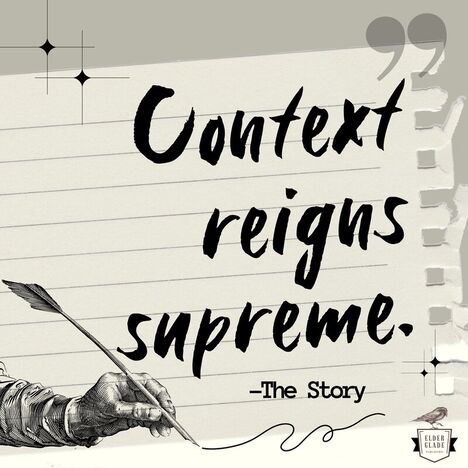
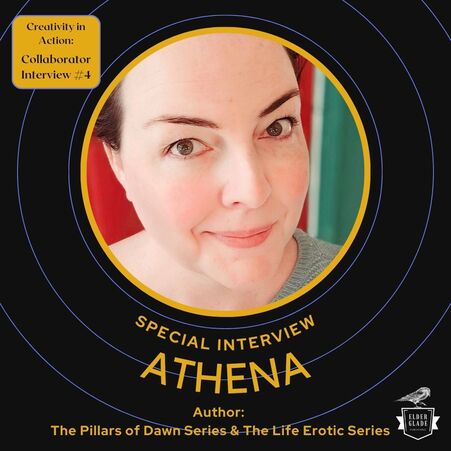
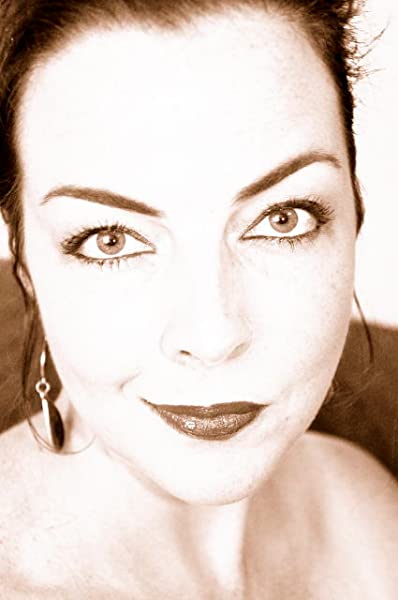
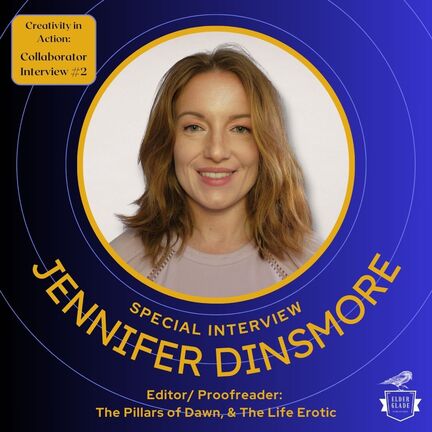

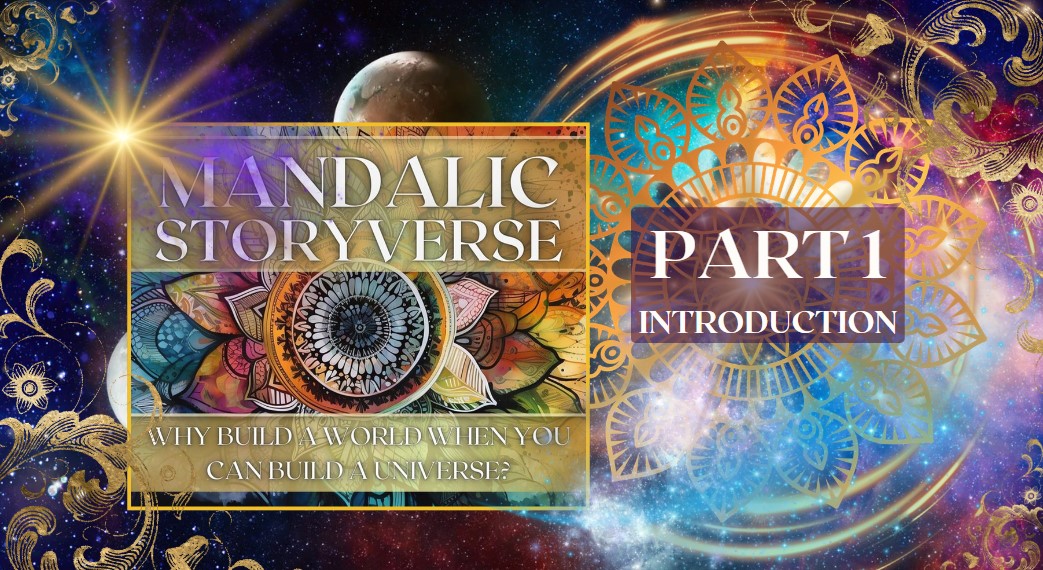
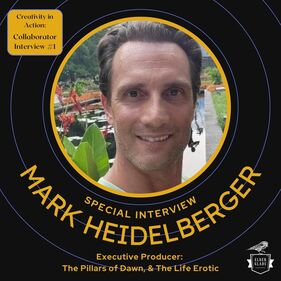

 RSS Feed
RSS Feed